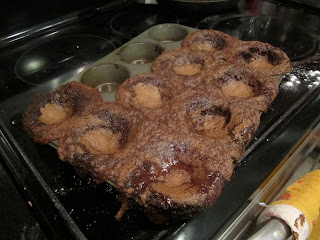
There's been considerable buzz on the web the last few days - on the
New York Times website, on Facebook, and on a physicians' forum called Sermo, at least - over a
New York Times article from last Thursday entitled, "
Getting Into Med School Without Hard Sciences."
The article describes the Humanities and Medicine Program at Mount Sinai Medical School, a program which each year admits into the medical school 35 undergraduates who major in the humanities or social sciences and can maintain a 3.5 GPA. Dr. Nathan Kase, who founded the program, said, "The default pathway is: Well, how did they do on the MCAT? How did they do on organic chemistry?...That excludes a lot of kids, but it also diminishes; it makes science into an obstacle rather than something that is an insight into the biology of human disease."
Students in the program, who apply during their sophomore or junior years of college, can forego taking the MCAT or physics, organic chemistry, and biology during college but do have a "boot camp" in those subjects at Mount Sinai prior to beginning their medical studies. A study published in the Journal of the AAMC entitled "
Challenging Traditional Premedical Requirements as Predictors of Success in Medical School" has reopened the sometimes vitriolic debate over whether the traditional requirements should be revised or whether they are even necessary.
This discussion is not new; essayist Lewis Thomas, while defending the vital importance and inherent wonder of scientific learning, wrote about the need for more well-rounded physicians and published an essay entitled "Humanities and Science" in his popular work Late Night Thoughts On Listening to Mahler's Ninth Symphony. Many medical schools around the nation have included "humanities and medicine" curricula as part of their med students' training.
Most physicians who were science majors have of course come out in passionate defense of tradition, with some showing embarrassingly arrogant contempt for their counterparts in the humanities. They have called the Mount Sinai program an example of the "dumbing down" of American education, which I find patently offensive as a former English major who chose one of the most science-oriented specialties in medicine (but also, to my mind, one of the most artful).
I value what I learned in biochemistry about molecular pathways and receptors and in physics about pressure gradients and flow, but I also know that my training in the humanities contributed to my intellectual skill set in ways my science classes could not. I can think critically, listen to and interpret stories, write a narrative, learn foreign linggo, diagnose conditions based on various clues and signs, analyze situations, and make critical decisions because of the riches I gleaned from strong training in both the sciences and the humanities.
I still remember a surgeon who once answered a patient who was surprised she hadn't read a particular Shakespeare play, "Well, I spent my time reading things that would actually be useful to you for this operation." I find this attitude to a sound literary education small-minded and cheap. People without imagination so often focus on what is considered visibly "useful" without considering the intangible good done by less pragmatic knowledge. I was taught by some of the best teachers in the world that understanding a character or a line of poetry is not fluff compared to deriving an equation but rather a crucial component in the working of the mind and its interaction with the world.
During my training I was once asked in front of a patient to recite some respiratory physiology equation which, to my patient's approval, I was able to do easily at the time. But I wanted to say to the attending physician, "Ask me, too, what this patient's story is. I can tell you because I listened. I can tell you because I can put together and recreate a good narrative. And in the end it will help me take better care of this patient than knowing that equation." Good patient care is and, for me, always has been about story and relationship as well as facts and figures. We have to be able to do well working with both.
I find the habit of many physicians of looking down at the humanities and humanities students completely obnoxious, but of course, I am biased. I happen to think I'm a better doctor for having been well-educated one, with multiple aspects of the mind trained and challenged - not just the ones that can distinguish between an ester and an amide.







